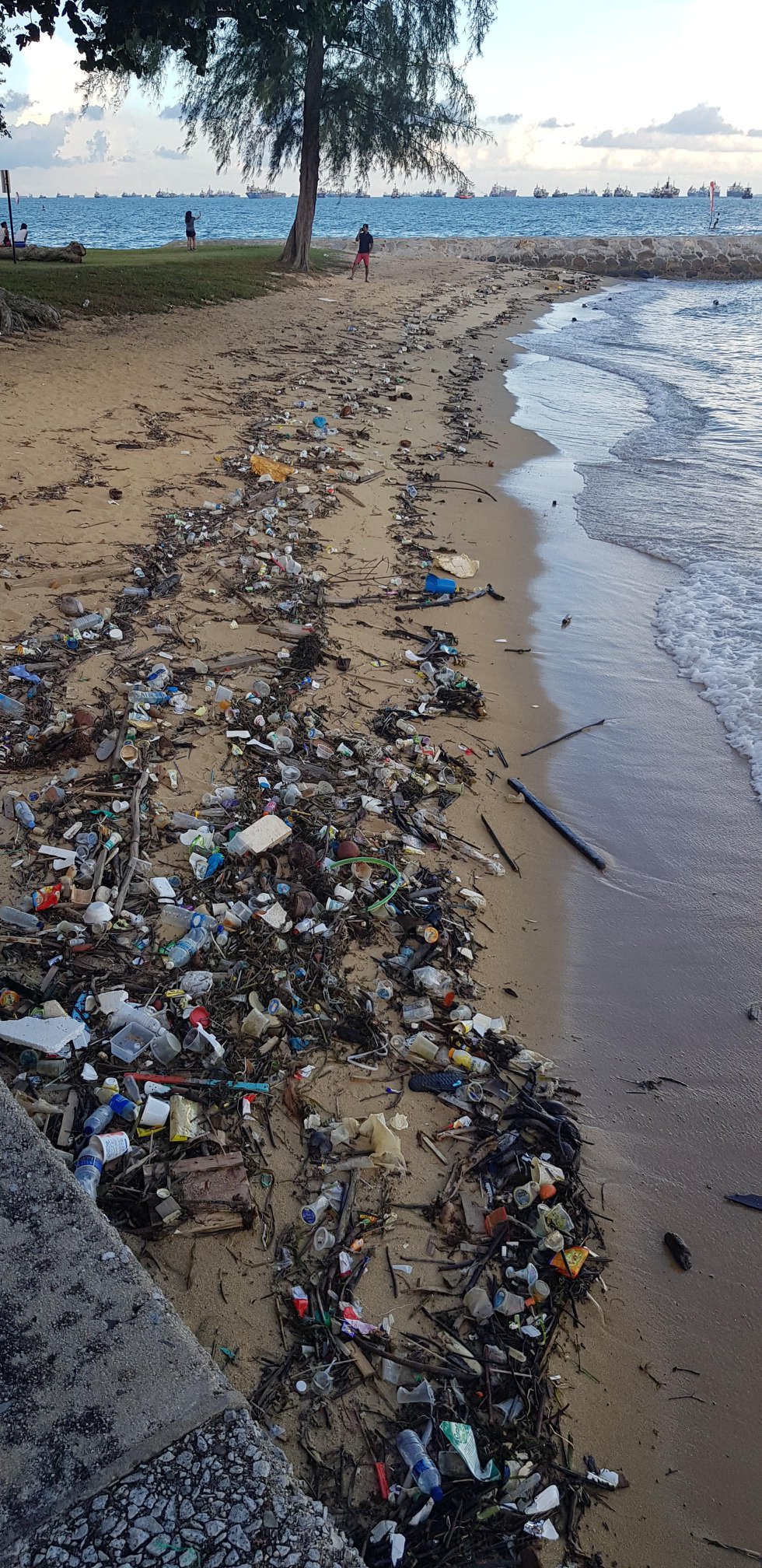The southwest monsoon season occurs in Singapore from June to September every year.
The monsoon brings more than just hot and humid nights.
Along with it comes waves of trash too.
Piles of trash along East Coast Park
Recently, photos of long lines of debris along the beaches of East Coast Park (ECP) were circulated online.
Here's what it looks like:
 Photo from All Singapore Stuff / FB
Photo from All Singapore Stuff / FB
Similar footage was also posted on Reddit.
[video width="608" height="1080" mp4="https://static.mothership.sg/1/2019/05/DASH_1080.mp4"][/video]
The sight elicited much shock from online users, and many decried the state of "clean and green" Singapore, calling for organisations and agencies to conduct cleanups.


Trash likely from offshore
From the sheer amount and types of trash, it is clear that the majority was washed ashore from the sea.
According to the National Environment Agency (NEA), such offshore detritus usually occurs in the months of May to October during the southwest monsoons, The Straits Times (ST) reported.
The trash could have potentially originated from a variety of sources -- offshore platforms like fish farms, passing ships or even neighbouring countries.
To cope with the mounting trash on the beach, NEA cleans the beaches up to twice a day, as compared to the usual four times per week, reported ST.
But this is only the case for recreational beaches such as ECP, Pasir Ris Park and Sentosa which are cleaned regularly by NEA.
Away from the public eye however, non-recreational beaches are likely to suffer a worse fate from marine litter.
According to a 2016 CNA article, non-recreational beaches such the Tanah Merah beach are not cleaned as frequently, resulting in more marine trash build up.
Trash could endanger marine life here
Singapore beaches are actually home to numerous animals, despite being seemingly barren and devoid of life.
Aside from corals that usually lurk unseen in our murky waters, one notable species that visits Singapore shores is the hawksbill turtle.
The critically endangered turtles have been spotted quite a few times. Between 2011 and 2016, 43 sightings of the reptile on the country's shores were recorded, reported The Straits Times.
Even ECP has had its own turtle visitor.
A mother turtle visited the beach in 2017, and laid around a 100 eggs, all of which successfully hatched thanks to the efforts of the National Parks Board (NParks).
You can watch a cute video of the baby turtle hatchlings making their way to the ocean here:
This makes maintaining clean beaches pertinent in Singapore as they are habitats to marine animals.
Taking ownership of our environment
While one can deter littering with fines, the culprits of marine trash are often hard to identify.
Perhaps education is a better long term solution to keeping Singapore clean and green.
As seen above, there is an overwhelming amount of trash in nature. Getting to know the impact of trash on wildlife might encourage more people to lend a helping hand in keeping our beaches clean.
Hopefully Singaporeans can start taking ownership of our environment and the cleanliness of our country.
Top photo from All Singapore Stuff / FB and Little Green Men / FB
If you like what you read, follow us on Facebook, Instagram, Twitter and Telegram to get the latest updates.
